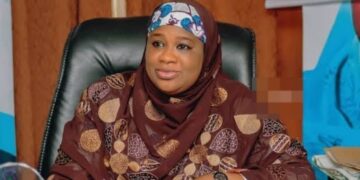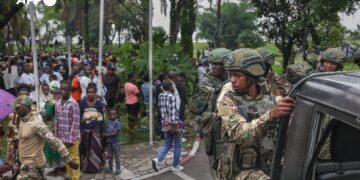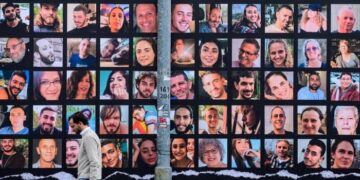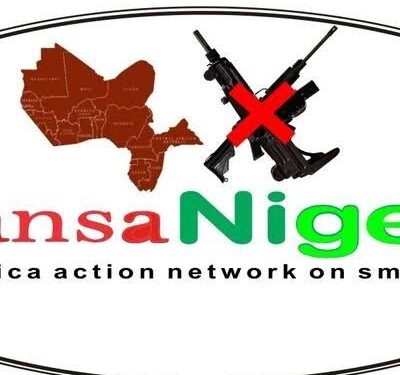Activists and stakeholders have reiterated their resolve to combat the menace of Gender-Based Violence, GBV, head-on, with a vow to ensure that offenders do not just end in registers and data storage.
President of the West African Action Network on Small Armas, WAANSA, Nigeria, Barr. Temitope Lamidi reiterated the resolve in her paper presentation at an event marking the 16 Days Advocacy Against GBV in Abuja on Monday.
Lamidi in her address titled ‘RevCon4 and Its Relevance to GBV: A Review of the United Nations’ 4th Review Conference on the Programme of Action on Small Arms and Light Weapons (RevCon4) and How International Agreements Can Help Prevent Gun Violence That Affects Women and Children,’ highlighted the critical issue of proliferation of small arms and light weapons and its devastating impact on women and children, which she said was the bedrock of domestic violence and abuse against women and girls in society.
According to her “Gender-Based Violence, GBV, disproportionately affects women and children. One of the most destructive tools enabling this violence is the proliferation of small arms and light weapons. These weapons are frequently used in domestic violence, intimate partner violence, and sexual assault.
“Small arms are also the primary weapons in conflict zones, where women and children suffer the most. In these regions, they are not only at risk of direct violence but also face displacement, psychological trauma, and long-term insecurity. The availability of small arms escalates the severity of violence against these vulnerable groups, making it a critical issue for both international security and human rights.”
She observed that the UN’s Programme of Action on Small Arms and Light Weapons aimed to curb the illegal trade and proliferation of such weapons, as well as the need for stronger international cooperation to prevent small arms from fueling violence.
The WAANSA leader noted that while the proliferation of small arms had contributed to global arms control efforts, its focus on gender issues had been limited with women and children as the most affected.
“Recognsing that small arms affect women and children differently is essential in addressing the broader humanitarian crisis.
“At the 4th Review Conference (RevCon4) in 2024, a significant breakthrough occurred. For the first time, RevCon4 acknowledged the gendered impact of small arms proliferation.
“The conference recognised that women and children are often the primary victims of gun violence, both in conflict and post-conflict settings. This was a key moment in integrating gender-sensitive strategies into arms control efforts,” she emphasised.
Lamidi therefore advocated for a more commitment in including gender perspectives in arms control policies, considering the role of women in peace processes, especially in disarmament and demobilisation program, as well as the fact that the proliferation of small arms exacerbates violence against women, particularly in domestic and community settings.
Earlier in his welcome address, the 1st Regional Vice President of WAANSA, Mr. Martin Igwe noted the great commitment of the Nigerian government, relevant stakeholders and civil society organisations in advocating for action against GBV, especially in the last few weeks.
Igwe hinted that WAANSA had been strongly involved in the campaign for the fact that small arms and light weapons are exploited to perpetrate such crimes, hence the urgent need for all stakeholders to work together in eliminating illegal proliferation of small arms in Nigeria and West Africa at large.
He also called for collaboration across all sectors for a holistic and coordinated approach to eliminate violence against women in all ramifications, with maximum punishment without option of fines.
In her address, the keynote speaker, Prof. May Ifeoma Nwoye decried the seeming denial of justice to victims of gender-based violence in most cases through intimidation and primordial sentiments like cultural exploitation and protection of family name.
She noted that domestic violence lead to some anti-social activities like forced prostitution, forced marriage which she tagged unpardonable crime against women and the entire humanity.
Prof. Nwoye propelled the adaptation of what she called “CTTD” (Closer-to-the-Door) approach for the women, especially those could hardly control their mouths or temperament during altercation with their spouses.
She, however, urged the authorities to come up with stronger measures to ensure that GBV victims get justice and also ensure conducive atmosphere that gives women and children more protection.














































